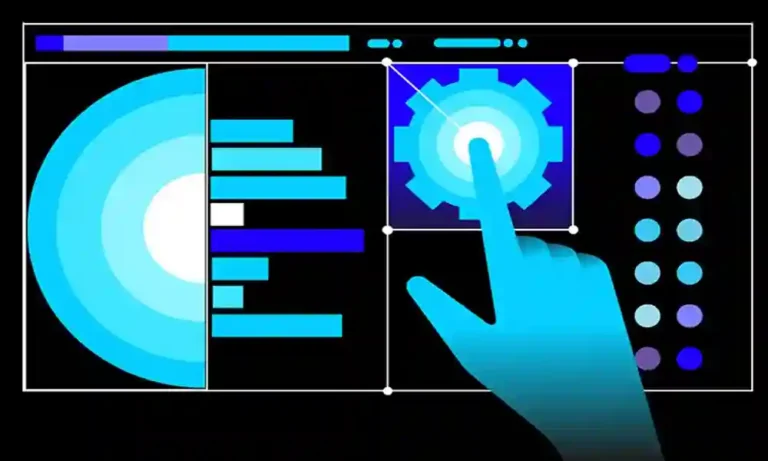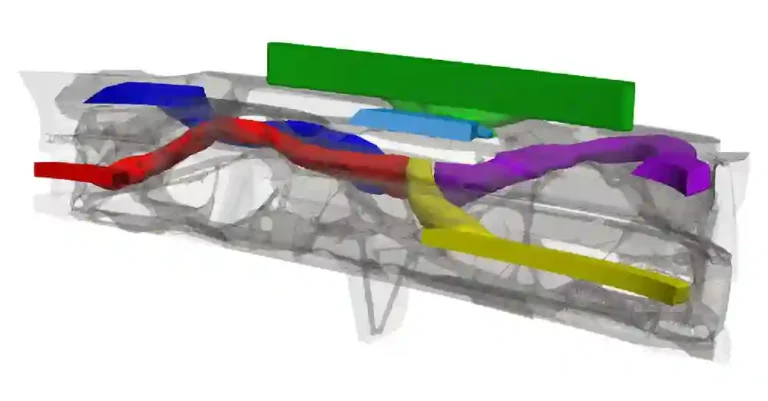
Blockchain technology is increasingly making its mark in industries far beyond cryptocurrency, fundamentally altering the way businesses operate and interact. Initially, blockchain gained fame as the underlying technology behind cryptocurrencies like Bitcoin and Ethereum, but its potential extends far beyond digital currencies. By providing a secure, transparent, and decentralized way to record transactions and manage data, blockchain is transforming various sectors, including supply chain management, healthcare, finance, and more. In this article, we’ll explore how blockchain is reshaping industries and creating new opportunities for innovation.
Revolutionizing Supply Chain Management
One of the most significant applications of blockchain outside of cryptocurrency is in supply chain management. Traditional supply chains often involve multiple intermediaries, which can create inefficiencies, increase the risk of fraud, and lead to delays. Blockchain offers a solution by providing a decentralized ledger that allows all parties involved in the supply chain to track products in real-time, from production to delivery. Each transaction or movement of goods can be recorded on a blockchain, ensuring that data is immutable and transparent. This increases trust between suppliers, manufacturers, and consumers, as everyone has access to the same information. Additionally, blockchain’s ability to streamline processes and reduce paperwork can lead to lower costs and faster transaction times. Companies like Walmart and IBM have already implemented blockchain solutions to improve the traceability of food products and reduce fraud, creating safer and more efficient supply chains.Enhancing Healthcare Systems
In healthcare, blockchain technology has the potential to transform the way patient data is stored and shared. Currently, healthcare providers store patient data in disparate systems, making it difficult to access or transfer information between different institutions. Blockchain solves this problem by creating a secure, interoperable, and transparent platform for managing health records. With blockchain, patients can have control over their own health data, deciding who can access it and when. This not only enhances privacy but also enables more accurate and timely medical care. For example, if a patient visits multiple healthcare providers, the blockchain can offer a unified view of their medical history, reducing the chances of medical errors caused by incomplete information. Additionally, blockchain can streamline the billing process by ensuring accurate and verifiable transactions, thus reducing fraud and administrative overhead.Transforming Finance and Banking
Blockchain is also transforming the financial industry, with banks and other financial institutions adopting the technology for a wide range of purposes. The primary application is in enhancing the security, speed, and efficiency of transactions. Traditional banking systems often require multiple intermediaries to process payments, which can result in delays and higher fees. Blockchain’s decentralized nature eliminates the need for intermediaries, enabling faster and cheaper transactions. One of the most well-known uses of blockchain in finance is in the realm of cross-border payments. Blockchain enables peer-to-peer transactions across borders, bypassing traditional financial networks and reducing the time and cost associated with international transfers. Furthermore, blockchain’s transparency and immutability help reduce the risk of fraud in financial transactions, making the system more secure. In addition to cross-border payments, blockchain is being used for smart contracts, which automatically execute agreements when certain conditions are met. This eliminates the need for intermediaries, such as lawyers or notaries, to validate contracts, saving time and reducing the potential for disputes. Financial institutions are also exploring blockchain for asset tokenization, which can allow for fractional ownership of assets like real estate, artwork, and even stocks, opening up new investment opportunities for individuals.Revolutionizing Legal and Real Estate Industries
Blockchain is also making waves in the legal and real estate sectors. In law, blockchain’s ability to create secure, transparent, and immutable records has the potential to revolutionize the way contracts, deeds, and other legal documents are managed. For instance, smart contracts can be used to automatically enforce the terms of agreements, reducing the need for litigation and human oversight. Blockchain can also streamline property transactions by creating a tamper-proof registry of ownership and transferring titles efficiently and securely. In real estate, blockchain can reduce fraud, speed up transactions, and lower administrative costs. By providing a transparent, auditable record of property ownership and transactions, blockchain can help eliminate issues such as title fraud and ensure that all parties involved in a transaction have access to the same verified information. Real estate tokenization, enabled by blockchain, also allows for fractional ownership of properties, enabling smaller investors to participate in the real estate market.Improving Voting Systems
Blockchain technology also holds great promise for improving democratic processes, particularly in voting systems. Traditional voting systems can be vulnerable to fraud and manipulation, leading to concerns about election integrity. Blockchain’s decentralized and transparent nature makes it an ideal solution for ensuring secure, tamper-proof voting records. By using blockchain, voting systems can be designed to allow for more secure and anonymous voting, while also making it easier to track and verify election results. Blockchain-based voting systems can ensure that each vote is counted accurately and that the results cannot be altered after the fact. Several countries and organizations are already exploring the use of blockchain in elections to enhance transparency, trust, and accessibility.Impacting Intellectual Property and Copyright Protection
Another area where blockchain is gaining traction is intellectual property (IP) and copyright protection. In the digital age, it’s become increasingly difficult to protect creative works and ensure that creators receive fair compensation for their work. Blockchain can be used to create secure and transparent systems for tracking and managing copyrights. By registering intellectual property on a blockchain, creators can prove ownership and establish an immutable record of their work. This can help reduce piracy and unauthorized use of content. Blockchain can also facilitate the distribution of royalties and licensing fees, ensuring that creators are paid fairly for the use of their work. This has the potential to disrupt industries like music, film, and publishing, where IP protection has traditionally been a challenge.Conclusion
Blockchain technology is reshaping industries far beyond cryptocurrency by providing secure, transparent, and decentralized solutions to long-standing problems. From supply chain management and healthcare to finance, real estate, and beyond, blockchain is driving innovation and creating new opportunities for businesses and consumers alike. As more industries adopt blockchain, we can expect even greater transformation in the years to come, revolutionizing the way we conduct transactions, manage data, and interact with one another. The future of blockchain is bright, and its potential to reshape the global economy is just beginning to unfold.Read More latest Posts
- Sabine Wren Star Wars Rebel: From Mandalore to Jedi Path Now
- Ryomen Sukuna Power Tier: JJK’s King of Curses Fully Unleashed
- RUB Ranking 2025: What It Means for Students and Employers
- Roxy FNAF Lore Breakdown: What’s Real, Fake, and Terrifying
- Roxanne Wolf in FNAF Explained: Glamrock’s Fiercest Predator





